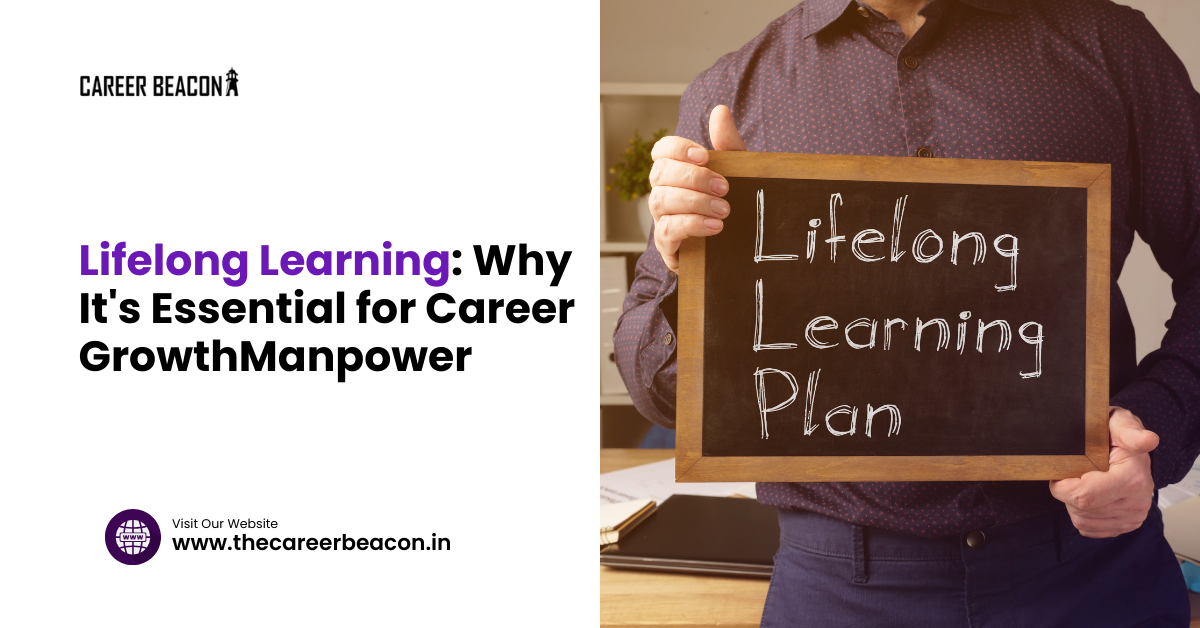
Lifelong Learning: Why It’s Essential for Career Growth
In the very modern and rapidly moving business environment where industries grow and new technologies appear, the idea of lifelong learning plays a significant role, as it never did. The concept of lifelong learning, therefore, is not just mere rhetoric; it is the process of learning that is lifelong and is also capable of enriching one’s working life. Lifelong learning can help differentiate between a candidate in a new corporate position fresh out of college or university and another experienced candidate who seeks promotion or a change of job.
The New World of Professional Employment
The ‘job for life’ model that once was the norm, with workers being employed at one company for their entire career, is less of a norm now. Technological development has escalated at a high rate, resulting in the generation of more human resource occupations as well as the elimination of others. The analysis carried out by the World Economic Forum states that close to 85 million jobs may be lost to automation by 2025; at the same time, it is expected that about 97 million new roles will be created as they are more symbiotic with the world of the new human-technology relationship.
These changes are evidence of the need to be flexible and to learn as new information becomes available. Those involved in lifelong learning are better positioned to handle these changes, for they can learn the skills needed to fit into the new positions or sectors.
What Makes Lifelong Learning Important in the Workplace
- Emplacing One’s Self for Sustainability from the Perspective of an Ever-Changing Job Sphere
This implication means that in the current employment environment, relevance is central. Employers are extending the search for an employee beyond a set of skills and experience necessary to complete a given task or tasks to the employee’s ability to acquire new knowledge. As a result of continuing with your education, your personal and professional skills will always be up-to-date, enabling you to closely fit the needs of any organisation.
For instance, let’s take an example of one of the sub-disciplines—digital marketing. About five years ago, a basic SEO and a simple understanding of how social media platforms worked would have sufficed. Today, however, a digital marketer must have skills in data analysis, artificial intelligence, and content marketing, to mention but a few.
The key is training so that these professionals can always be in tune with these trends and remain relevant.
- Effective strategies to promote employability and career progression
To sum up, one should actively engage in training throughout one’s career to create greater demand for oneself in the labour market. It can also lead to career promotions and other such positional opportunities. Regardless of whether you are seeking promotion within your organisation or a career change, return to school, continue learning, and you will be the force behind your promotion.
It is also important to exhibit a willingness to learn because employers nurture employees they believe are willing to learn and develop themselves. This commitment is also a testimony that you are an active citizen, willing and curious about your future and personal development, hence making you a qualitative fit for any organisation.
- Fostering innovation and creativity
It is therefore almost impossible for many companies to succeed in their operations without employing innovation as a component of their drive. Continued learning puts you in a position to change your perception of several issues and gives you new chances to come up with new ideas for the task assigned to you. Thus, by gaining more knowledge in different fields, you may look at a problem from a different perspective and think outside the box, which would help you stand out from your colleagues.
For instance, an engineer who, as a habit, takes further education is likely to come across new methods or tools that can be adopted to enhance ways of doing things or even come up with products. Such innovation may translate to such things as promotion, recognition, and, in some cases, being rewarded financially.
- Building a growth mindset
Lifelong learning enables a growth mindset, which is the understanding that one can grow and improve in ability through practice, training, and learning. A growth mindset is crucial when it comes to career advancement since it helps one accept challenges, listen to feedback, and keep on practicing even when he or she is faced with several drawbacks.
Also, when you embrace the right attitude in terms of welcoming more challenges, looking for learning experiences, and practicing enhancement in your abilities, the following are some of the benefits that can accrue from personal and professional development: Increased job and career satisfaction may result in higher organisational performance and outstanding achievements in one’s career.
How Can One Practice Lifelong Learning?
To support and encourage lifelong learning does not necessarily mean that a person should return to school or spend a lot of money on professional courses. There are many practical ways to integrate learning into your daily life:
Online Courses and Certifications: In this case, some of the available platforms are Coursera, edX, and Udemy, which provide different courses in all fields. Most of these courses are offered at little or no fee to the students to encourage as many to enrol as possible.
- Reading books and articles: According to the present paper, the most effective means of procuring new knowledge is through reading. It can also be in industry-specific books, articles, or blogs; the reading habit, however, ensures that one is well-informed on the next big thing to expect in the industry.
- Networking and Mentorship: Being able to talk and interact with those in your line of work at events such as conventions and professional affiliations, along with internships, offers knowledge and edification. Getting insights from other people’s success stories can assist you in preventing mistakes and progressing in your career at a much faster rate.
- Workshops and Seminars: Participation in workshops and seminars makes it possible to acquire and practice new skills in one’s capacity. Most such occasions offer the chance to network, share ideas, and work with professionals and colleagues.
- Reflection and Self-Assessment: Evaluating your skills, or, in other words, self-observations resulting from the evaluation of your experiences, gives a viewpoint on the aspects that need further development. It is important to define learning objectives and ensure that one’s personal and/or career development is on track.
Conclusion
No one can deny that the world is full of changes; thus, it comes as no surprise that education throughout the lifespan has become a necessity. Such an approach to self-education enables one to remain relevant, improve the chances of getting a job, develop creativity, and ultimately cultivate a winning psychological attitude that will help advance in the professional field. Make career advancement your life compass, and you will learn that the gain is not just the promotion but a better you in every area of your life.


